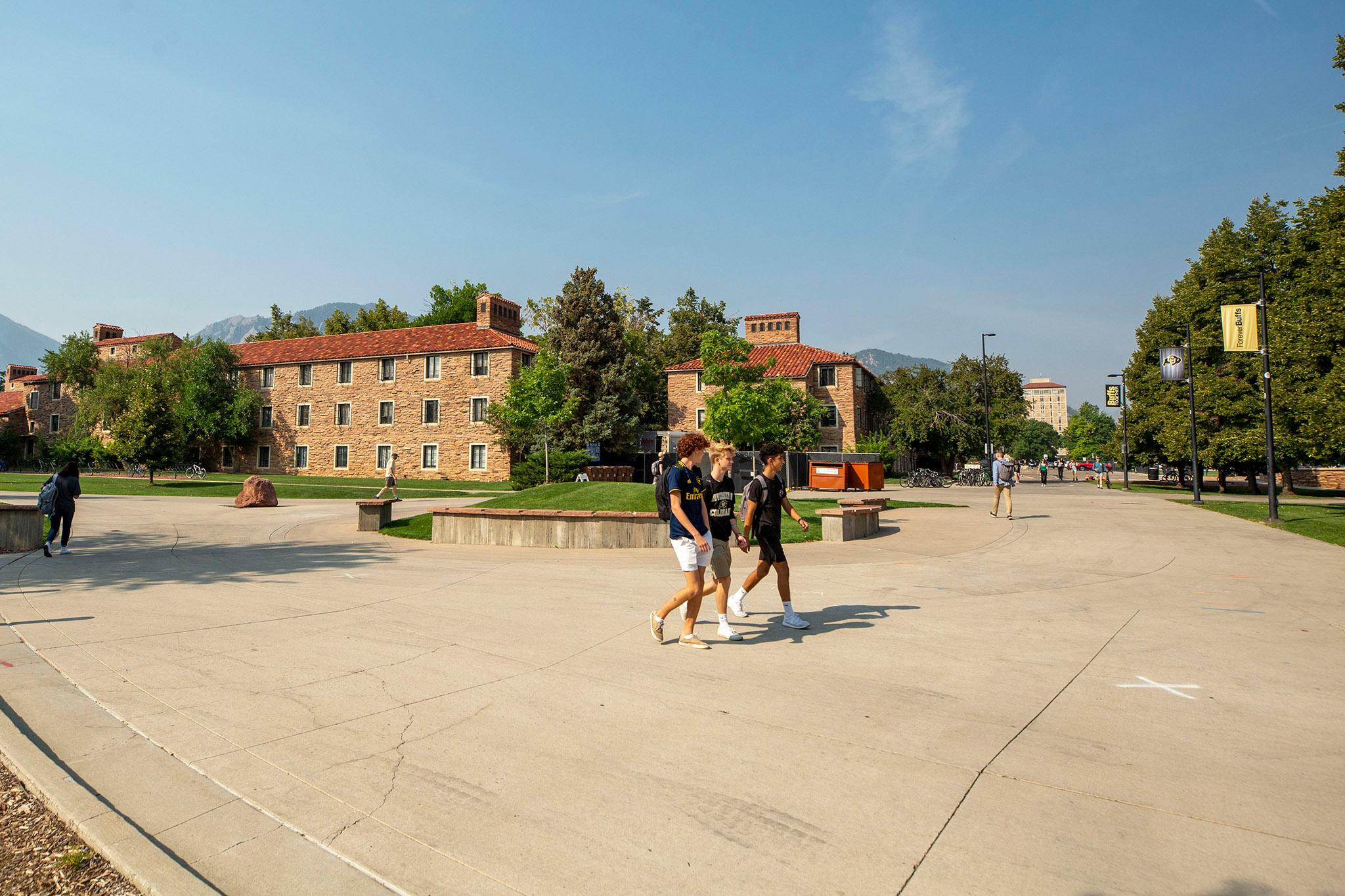
Almost a year into the Trump administration’s crackdown on visas and immigration, Colorado universities reported a steeper decline in international students than the rest of the nation.
More concerning, while the overall number of international students on U.S. campuses is down 1 percent from the previous academic year, new international students declined 17 percent, according to new fall 2025 snapshot data published this week by the Institute for International Education.
The snapshot is based on 825 institutions that host more than half of all international students.
This could signal larger decreases ahead as international students graduate and if difficulties obtaining student visas remain. International students have faced new rules causing visa delays and denials, social media vetting policies, travel restrictions and universities nationwide have faced cuts to federal research funding that supports graduate students, according to the survey.
“While we share concern about the recent decline … our commitment remains unwavering: to create an environment where students from around the world feel valued, supported, and inspired to succeed,” said Angie Paccione, executive director of the Colorado Department of Higher Education. “We want future students to see Colorado as their academic home — a place where they can learn, thrive, and belong.”
How did Colorado schools fare this fall?
The report shows graduate students are driving most of the decline. That’s true for the University of Denver, where international enrollment declined 19 percent this fall, driven mostly by graduate students.
The Colorado School of Mines cohort dropped about 8 percent. Colorado State University’s international enrollment decreased by 4.5 percent. CU Boulder’s undergraduate international numbers were down 10 percent.
Figures weren’t available for all new international students in Colorado who are on campus for the first time. But new international students at CU Boulder declined 27 percent, mostly among graduate students. The federal government has cut research funding at many universities, which attract graduate students.
There are significant cultural and economic consequences. One national study shows the decline amounts to $1.1 billion in lost revenue and nearly 23,000 jobs.
“Their diverse perspectives enrich our classrooms, and their cultural and economic contributions — amounting to more than $409 million — strengthen communities across the state,” Paccione said.
No university would speculate on the impacts of federal government decisions. A CU spokesperson said the university is focused on supporting the international community.
“We are also looking at ways to strengthen our enrollment strategies and overall support for international education and global initiatives that will continue to drive our value as a leading public research university.”
Last academic year’s figures show slight growth
Another Institute for International Education report released this week, the Open Doors report, shows the slowing began last school year. The number of international students in Colorado grew 1.8 percent last academic year compared to 4.5 percent the previous year. Nationwide, total international student numbers fell 7 percent.
It shows 10,547 students from abroad studied at Colorado universities last year, up 184 students from the year before. Colorado slipped from 23rd to 24th in the nation.
India remained the dominant sender, making up 33 percent. China declined from 11.2 to 9.7 percent. Kuwait stayed about the same, Saudi Arabia had a slight increase, and the number of students from Canada stayed about the same.
CU Boulder, CU Denver and Colorado State University all grew in international students last year. DU was down 136 international students (its own statistics show 113), and the Colorado School of Mines dropped sharply by 254 students.
Study abroad
The number of students studying abroad increased modestly to 6,583, with CU Boulder sending the most students. The most popular destinations were Italy, Spain, the UK, France and Japan.
In terms of the percentage of students who study abroad, the Institute for International Education ranked the University of Denver ninth among doctoral-granting institutions. More than 71 percent of 2023-24 graduates studied abroad. Students pay tuition to DU, and then DU pays that tuition to the study abroad program. The Cherrington Global Scholars initiative covers the cost of round-trip airfare and visa application fees.

This academic year, 846 DU students have committed to going abroad, with most already at their destinations for the fall quarter.
“DU study abroad students expand their horizons, deepen cultural understanding, and build lifelong skills and confidence that empowers them to grow academically, personally, and professionally in ways no classroom at home can fully replicate,” said Uttiyo Raychaudhuri, vice provost for internationalization.
In the spring of 2025, CU Boulder posted a 40 percent year-over-year increase in students studying abroad. The university ranked fifth among doctorate-granting institutions for providing semester-long study abroad opportunities. It ranked 13th for institutions awarding credit for study abroad.
| This story is part of a collection tracking the impacts of President Donald Trump’s second administration on the lives of everyday Coloradans. Since taking office, Trump has overhauled nearly every aspect of the federal government; journalists from CPR News, KRCC and Denverite are staying on top of what that means for you. Read more here. |









